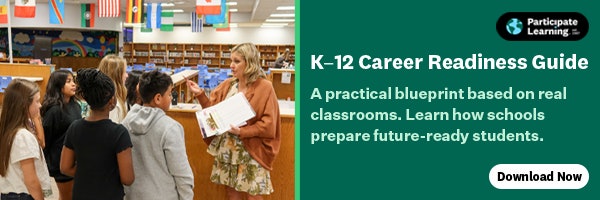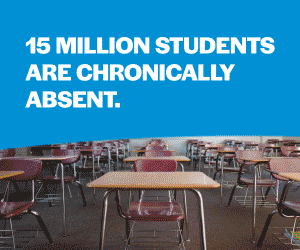
As students across the U.S. enjoy the end of their summer, educators and parents alike are concerned about that first day of school and how much (or how little) academic skills their children have retained over the break. But there’s an added layer of concern. For the past five years, schools have grappled with the impacts of the COVID-19 pandemic’s disruptions to learning. Recent NWEA research showed that middle schoolers need close to a full academic year of additional instruction to catch up to their pre-pandemic peers. These dire results were echoed in the latest National Assessment of Educational Progress (NAEP), where only 30% of 8th graders are reading at or above proficiency.
Family partnerships are a big factor
Engaging families year-round, not just during the summer, is critical for schools to build long-term, trusting partnerships and help improve academic outcomes. When done effectively, family engagement leads to better academic outcomes, as well as stronger student well-being and better school attendance. But keep in mind that engagement may look different at the upper grades. Factors like families living farther from schools, teachers having more students, and adolescents seeking greater independence all impact family engagement.
Action steps from a literacy expert and a mom of a high schooler
Recognizing that engaging families and encouraging literacy support at home looks different in the upper grades, here are five things to consider:
- Set goals. The start of summer or back-to-school time are all great opportunities to set goals. Discuss what your teen wants to accomplish during the summer months that are both academic and personal in nature, such as reading books, completing summer assignments for upcoming courses, continuing a hobby (e.g., fishing, playing the guitar, etc.), or learning a new skill (e.g., photography, coding, etc.). Put together a plan that prioritizes those activities.
- Reinforce good reading habits. Many of the things I do with my high schooler started years ago in elementary school and are now just a part of our lives. Select books off of their grade-level summer reading lists as well as engaging graphic novels or autobiographies. Then, dedicate time for daily independent reading. Building strong habits that reinforce literacy at school and at home takes time. Consider what you can start doing as early as kindergarten that builds a routine of prioritizing literacy.
- Keep a journal. Encourage adolescent children to keep a journal of what they read or their reflection of the day. Writing often throughout the summer months even with short entries helps students recall the content of the books better as they return to school and continues to polish their summarizing and writing skills.
- Build knowledge. Research shows that background knowledge positively affects reading comprehension. Leverage your teens’ interests to develop a depth of knowledge and vocabulary about a topic. Whether it is learning about the habitats and different bait of the various fish they catch, learning about different terrains on hiking and camping trips, or learning about different cultures and communities while traveling, encourage them to take deep dives into various topics through different types of literature and media.
- Model good reading and writing behavior. Parents and other adults in an adolescent’s life are incredible role models. If they see key adults reading regularly, they will be more likely to read themselves. I often discuss the books I’m reading with my children and share my thoughts on what I read or learned. Even if I’m on my phone, I let my children know when I’m reading a news article or a blog post and my reactions or thoughts about the topics.
As more research and understanding of the impacts of the last five years illuminate the depth of the pandemic’s disruptions to learning, schools must prioritize partnerships with families not just during the summer, but year-round. This means meeting families where they are, offering practical and consistent literacy support advice, and encouraging habits that can grow over time.
Dr. Amy Endo is an Education Research Director at NWEA, managing the research work for the supplemental, intervention literacy and language development programs at HMH (NWEA’s parent company).


























